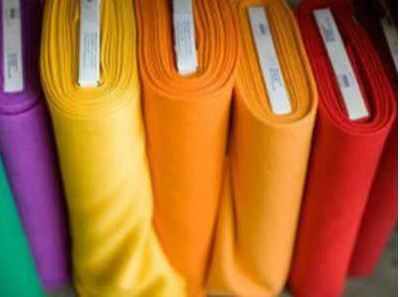SECUNDERABAD: When Dewan Bahadur Ramgopal decided to set up DBR mills in 1922 it was Secunderabad he chose.
Ditto for FD Khan, one of oldest retailers of uniforms in the twin cities, that began its journey in 1925 with a trading company and a uniform stitching unit for the Nizam’s army and police force at Secunderabad.
The area housed the British army barracks and various trading establishments sprang up to cater to the needs of its officers and soldiers, leading to the birth of the oldest textile trading hub in unified Andhra Pradesh.
Today, DBR Mills is defunct and FD Khan shifted to Abids after independence, but Secunderabad continues to reign as the state’s largest textile wholesale hub. Hence it was no surprise that a recent survey conducted by TOI in association with Varenia CIMS, saw 26% residents stating that the textile industry holds the greatest potential in their city.
This was expected, says the textile industry, given Secunderabad’s envious textile history. “Secunderabad has been home to the biggest and oldest textile wholesale hub in unified AP since the preindependence era. We have had a rich textile legacy,” says Prakash Ammanabolu, president, Telangana State Federation of Textile Associations.
Prakash, also president of the Secunderabad Cloth Merchants Association, points out that today Secunderabad houses nearly 2,000-2,500 small, medium and large wholesale as well as retail outlets that together clock a turnover of Rs 3,000 to Rs 5,000 crore per annum.
The MG Road area alone is chock-a-block with an estimated 500 wholesale outlets selling suitings, shirtings, sarees, dress materials, as well as furnishings.
Some also attribute the spike in the number of shops in Malkajgiri, AS Rao Nagar, ECIL and Sainikpiri to the expansion of the city itself. “You can find answers to all your fabric needs in Secunderabad but the space and traffic constraints have encouraged the establishment of shops in different parts of the city,” he adds.
The potential of Secunderabad to further grow as a textile hub is propelled not only by the city’s textile legacy but also the economics attached to the area. “Compared to areas like Hi-Tec City, Banjara Hills, the establishment costs, rent, maintenance and labour charges are lower in Secunderabad, which is an added advantage,” explains Deepa Gullipalli, who owns a clothes store and stitching centre in Nirmal Nagar.
Gayathri Reddy, the owner of a boutique in Defence Colony, used to spend a lot of time travelling long distances to get her hands on a fancy piece of fabric and decided to ‘stitch’ her own destiny by setting up her own store. “I had to travel 30 km to get to boutiques in Banjara Hills and Jubilee Hills, which was a big hassle. My peers advised me to open a store in Secunderabad and ever since there has been no looking back,” she says.
Like Gayathri, most textile traders in Secunderabad are laughing their way to the bank, notwithstanding the recent slump. Farhan Mithani, whose family owns IK Textiles in General Bazaar, says, “Business is booming in various parts of Secunderabad. There is tremendous untapped potential in areas like Bowenpally and Malkajgiri for textile traders to up their game.”
And it’s not just textile traders. National Institute of Fashion Technology, too, is gung-ho about this growth. NIFT-Hyderabad joint director GHS Prasad says the growing interest in textile and fashion retail is a healthy sign.
“Despite the economic slowdown, interest in the textile industry is a positive development,” he says.
Published On : 01-10-2019
Source : Times of India

